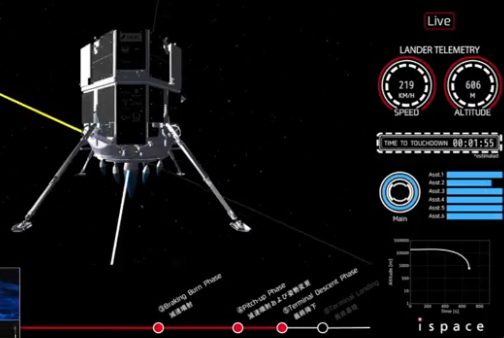As already reported, in October, the outgoing head of GCHQ, Sir Iain Lobban, made a valedictory speech in strong defence of GCHQ and its methods, in the fight against “plotters, proliferators and paedophiles.” His carefully chosen and emotive words have now been echoed by the Commissioner of London’s Metropolitan Police, Sir Bernard Hogan-Howe, who has similarly warned about the internet’s dark nature and the need to monitor the villains that use it.
In early November, the UK’s GCHQ monitoring agency’s new director, Robert Hannigan, wrote an article for the London Financial Times in which he accused US tech firms and social media organisations of being “in denial” about how terrorists and extremists use their services. Hannigan said that the tech firms had become “the command and control networks of choice” for extremists. On a more conciliatory note, Hannigan called for more cooperation between these tech companies and Western security agencies.
Hannigan’s attack and subsequent entreaty was apparently in response to a decline in cooperation between the social media firms and the US and British security agencies which followed public concern after damaging revelations made by renegade US security contractor, Edward Snowden, that state agencies were already mounting mass surveillance on social media and e-mail systems.
US and UK security and intelligence agencies have long worked together as allies, with each nation having different strengths to contribute. US intelligence has traditionally been stronger in space-based optical and electronic surveillance, while the UK’s secret services are noted masters of human intelligence. Their respective communications surveillance agencies, the US National Security Agency and GCHQ, also work closely together. However, Snowden revealed they had also devised ways to spy on each other’s populations’ electronic and phone communications as a way of evading their own respective national surveillance laws. For example, officially it is against US law for US security agencies to use US space assets (US reconnaissance and electronic intelligence satellites) to directly spy on US citizens, so using GCHQ as an information intermediary gets around this.
As a result of the public backlash, both organisations are said to be worried, not only over new legal restrictions which might be imposed on them, but also that tech firms are implementing new encryption technologies, which may prevent the effective surveillance of terrorist or military threats.
The UK’s security and police services have on the back foot recently, partly over the Snowden-revelations that all internet communications were being routinely monitored, but also because the police have been discredited after they admitted that they had been spying on journalists’ communications and on crime victims’ families as well.
The UK’s state security and surveillance services, including GCHQ, again found themselves defending a very weak position in the privacy versus security argument. This was after the UK government released documents in a court case showing that its security agencies have been given permission to intercept verbal and written communications between lawyers and their clients.
Comment by David Todd: While computer and code-breaking technology has moved on dramatically since the World War II era of Alan Turing’s Bletchley Park, in some ways it was simpler task in the 1940s. While it had difficult-to-crack Enigma codes to deal with, Nazi Germany was an easily identifiable enemy. In this modern era of relatively unsophisticated but hard-to-identify terrorists, the opposite is true. This means that GCHQ, Bletchley Park’s modern successor, is more concerned with mass data handling and sorting, rather than doing pure code cracking. However, this may change shortly. It is the concern that social media firms will apply new sophisticated encryption methods in response to unpopular mass-data hauls, which has led to the new head of GCHQ to make his request to the tech firms for more cooperation.
This request may yet turn into a demand. To date it has only been in the non-democratic and pseudo-democratic nations, China, Iran, and most recently Russia, that insist upon full access to communications data of phone, e-mail and social media systems. Such data access allows governments and their agencies, including those notionally democratic ones, to track and monitor not only the “bad guys” – international terrorist organisations, foreign military and espionage threats etc – but also internal political opponents and human rights protestors, as well as journalists and their sources. Leaving it up to a state’s usually self-righteous security services to define exactly who the “bad guys” are, remains a slippery slope.
Meantime, the newly-revealed UK Government policy of allowing state security to listen in on communications notionally protected by the 400-year-old “privilege” Common Law right of lawyer-client confidentiality will, no doubt, be defended under the pretext that a greater good is served and that “the end justifies the means”. In the meantime, yet another basic and long held human right, has now bitten the dust.
Updated on 26 November 2014: Following a parliamentary inquiry into the murder by terrorists of the British solider, Fusilier Lee Rigby, the social media firm, Facebook, has been criticised for not doing enough to inform the UK security agencies when it removed the extremist postings by one of the men later found guilty of the murder. The Facebook postings apparently explicitly laid out an intent to kill a British soldier. The two Islamic extremist terrorists involved were already under suspicion by the UK’s security service MI5. Some have accused the security agency of scapegoating Facebook as a way of deflecting attention from its own failings laid out by the inquiry.
In the same week, the UK’s Home Secretary, Theresa May, prepared to set out her new security legislation in front of the UK parliament. She declared that given recent and current security threats the “time is right” for new security measures to force internet service providers to keep IP address data on all users for 12 months – a slightly watered down version of the original “Snoopers’ Charter” proposal which failed to get through parliament. Civil liberties campaigners note that the government is evoking more scare tactics at a time of heightened tension in its latest attempt to get draconian legislation through. The government faces a fight however, over this data-snooping aspect, and over a measure to restrict the international movement of certain “suspects” without any kind of judicial review.
Comment by David Todd: We can only hope that the MPs voting on this Bill, do not become turkeys voting for Christmas.







